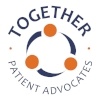 Questionable medical information abounds on the internet--numerous sites touting weight loss "miracles" and cures from cancer to diabetes. How do you know what sites are trustworthy when you're researching a medical condition on the web? Here are some basic guidelines to follow when researching:
Questionable medical information abounds on the internet--numerous sites touting weight loss "miracles" and cures from cancer to diabetes. How do you know what sites are trustworthy when you're researching a medical condition on the web? Here are some basic guidelines to follow when researching:
- Start with trusted web sites. Sites like mayoclinic, webmd and uptodateonline are known to be trustworthy. You can search your condition on these sites and know that you’re receiving current information that was written by medical experts. I’ve compiled a list of such sites here.
- If the diagnosis you are researching has a foundation, go to the national foundation site. For example, for cardiac conditions, look at the American Heart Association.
- When looking at a site, first check to see who is in charge of the site by looking at the "About Us" section, usually linked at the bottom of the home page. Why did they take the time and money to publish a web site? Be wary of sites that are trying to sell something to you: some of these may have some valid information, but only trust the information if you can find it on a reputable site as well.
- Look to see that advertisements are clearly labeled as such and are easy to differentiate from the rest of the information on the page. Some of the trusted sites listed in #1 include advertisements, but these are labeled “Advertisement” and easily distinguished from the rest of the information provided. That should be the same on other legitimate sites.
- Avoid sites that include the words “miracle,” “new cure,” or other excitable claims. These sites are likely trying to sell you something. If it sounds too good to be true, it is.
- Check the privacy guidelines. If the site asks for your personal information, it should tell you how it will be used. Make sure you’re comfortable with how it’s going to be used before entering your personal information.
These are a few basic rules of thumb to use when looking at medical information on the web. For more detailed information, check out the National Network of Libraries of Medicine guideline, the National Library of Medicine tutorial and Trust It or Trash. For information specific to Complementary and Alternative Health see The National Center for Complementary and Integrative Health guideline.



.gif?width=200&name=NAHAC-Member-Badge200x112+(1).gif)


